|
TRANSLATE THIS ARTICLE
Integral World: Exploring Theories of Everything
An independent forum for a critical discussion of the integral philosophy of Ken Wilber
 Be Scofield is a queer/trans writer, activist, founder of decolonizingyoga.com, Dr. King scholar and web/interaction/graphic designer who specializes in helping progressive and alternative health platforms shine. Her work has appeared in Tikkun Magazine, Huffington Post and Alternet and she has a chapter in the book 21st Century Yoga: Culture, Politics & Practice. Be holds a B.A. in Psychology/Philosophy from Warren Wilson College (2006), has done graduate coursework in Postcolonial Anthropology and holds a Master of Divinity from Starr King School for the Ministry in the Unitarian Universalist tradition with emphases in women's studies in religion, sacred dance, African-American religion and Buddhism. Be specializes in the radical teachings of Dr. King and has taught a graduate course called "Dr. King and Empire: How MLK Jr. Resisted War, Capitalism and Christian Fundamentalism."
Republished from Tikkun Daily, July 7th, 2012 (with reader comments)
Why
Eckhart Tolle's
Evolutionary Activism
Won't Save Us
Be Scofield
Why can’t this divine evolutionary impulse awaken us to the reality of things that actually matter like deforestation, pollution, racism, homophobia or imperialism?
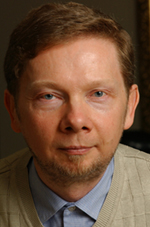 Eckhart Tolle: "True change Eckhart Tolle: "True change
happens within, not without"
Eckhart Tolle’s books The Power of Now and A New Earth have not only sold millions of copies and been translated into dozens of languages but they’ve earned him the title “the most popular spiritual author in the [United States]” by The New York Times. He’s gained worldwide popularity amongst the masses and widespread admiration from movie stars, celebrities and famous musicians. Annie Lennox of the Eurhythmics said that he “has some kind of special quality that I’ve never seen before.” One student of his work asked in an online forum, “has he appeared in your dreams as well?” Oprah included The Power of Now in her 2000 book club, helping to launch it to the number one spot on the New York Times book list a few years later. They also teamed up in 2008 to produce a 10-week webinar on the teachings of A New Earth. Millions of people from around the world tuned in for this first of its kind techno-spiritual phenomenon. Never before was so much wisdom instantly accessible and easily understood.”
Given the central role Tolle plays in modern spiritual thinking his ideas have world-wide implications. He is one of many modern day teachers who emphasizes internal transformation as the central most important part of global transformation. As a result he makes quite exaggerated statements about the relationship between a privatized psychological shift and the larger transformation of the planet. His solutions are simplistic and border on irresponsible, especially when so much is at stake. Understanding the details of his spiritual framework and how his personal experience of transformation influenced it sheds light into Tolle’s thinking.
Awakening
Born in 1948 in Lunen, Germany, Tolle received no formal education between the age thirteen and twenty-two. He says that he simply stopped attending school due to a hostile environment, a decision his father wholeheartedly supported. On his own time he took language classes, read literature and studied astronomy. Unhappy as a child, Tolle thought about suicide from an early age, something that would periodically haunt him until his later awakening. “How can I eliminate myself from this world,” he wondered. Entering the University of London at age 22, Tolle studied psychology and philosophy and graduated with the highest mark possible. He subsequently received a scholarship to continue his work at Cambridge University. It was here, in 1977, at the age of 29, that Eckhart’s life took an unexpected turn.
After years of an “unbearable” and “loathsome” existence Tolle awoke terrified in the middle of the night to be faced with his worst demons. “I cannot live with myself any longer” he repeated to himself over and over again. Everything was “so alien, so hostile and so utterly meaningless” that he longed for annihilation and non-existence. Living had become almost entirely superficial. The “motivating power” behind his life, particularly his academic career, was “fear and unhappiness.” The facade he had built for himself was tumbling down.
Then, as if a deeper and more profound consciousness took over, Tolle began asking himself “Am I one or two? If I cannot live with myself, there must be two of me: the ‘I’ and the ‘self’ that ‘I’ cannot live with.” Maybe, one of them wasn’t true he wondered. His body began shaking as a powerful fear overcame him. The words “resist nothing” internally echoed in his chest. For the first time he felt the void inside himself as opposed to outside. Abruptly the fear disappeared and he let himself “fall into the void.”
The next morning Tolle awoke to a different world. It was beautiful and alive. He saw love expressed in the dawn sunlight peeking through the curtains. As he became emotional he walked around the city as if he was born again.
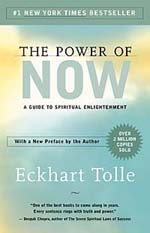
After this profound inner shift Tolle claims to have lived in a “state of uninterrupted deep peace and bliss” for around five months. He studied spiritual texts, worked with teachers and eventually spent two years in a state of profound joy while sitting on park benches. He was realizing that his shift in thinking had peeled back the layers to reveal the “ever-present ‘I am’: consciousness in its pure state prior to identification with form.” Tolle had discovered something of immense value and was now ready to share it with the world.
Tolle’s Vision of Social Change
Given the profound nature of Tolle’s personal awakening and the incredible sense of peace and joy that he felt one can see why he makes a direct link between his own private experience and social transformation. Indeed, if there is a defining theme in his work it is just that: internal spiritual transformation leads to a better, more peaceful and just world. More so, Tolle identifies a shift in the inner world as the only significant factor in social change.
The primary factor in creation is consciousness. No matter how active we are, how much effort we make, our state of consciousness creates our world, and if there is no change on the inner level, no amount of action will make any difference. We would only re-create modified versions of the same world again and again, a world that is an external reflection of the ego.
This line of thinking is problematic. For example if someone were organizing to change the racist institutional structures in society but yet hadn’t changed on the “inner level” Tolle is stating that their work would be futile. Of course people with lots of inner baggage contribute immensely to the transformation of the world and similarly, those who have done years of therapy, are deeply in love with healthy families are responsible for supporting some of the most harmful policies. He proposes that once people awaken to the deepest experience of Being the world will somehow drastically change.
We are not separate from our world, so when the majority of humans become free of egoic delusion, this inner change will affect all of creation. You will literally inhabit a new world. It is a shift in planetary consciousness.
We first need to ask, when one becomes free of egoic delusion what will their positions be on abortion, health care or foreign policy? Won’t this “new world” merely reflect the views of those who describe it, like Tolle? Egoic delusion is vague and it’s unclear what this means in the context of social transformation. In an interview Tolle admits to have $4 million dollars just sitting in the bank. What is the best “ego-free” use of that money? Becoming free of egoic delusion does nothing to provide answers to the most complex moral questions we face. Thus, it is inaccurate to suggest that once we are all free of ego we will inhabit a new world. In order to believe Tolle, you have to think that anyone who “awakens” will necessarily share the exact same social, political and cultural ideology. Secondly, forget about ethical systems, community, protesting or frameworks for engaging with others, everything one needs to play his or her part in the creation of a new world can be found within. He states, “The light of consciousness is all that is necessary. You are that light.” Global transformation has never been easier.
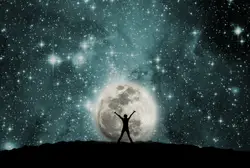
Tolle’s bold claim rests on the belief in a “vast realm of intelligence beyond thought,” that once accessed will guide and direct the planetary transformation through humans. In short, God is evolving through us. It is in this space if Being that such universal experiences as “beauty, love, creativity, joy and inner peace” originate. This energy is the “intelligence, the organizing principle behind the arising form.” Tolle uses the terms Source, the Unmanifested, consciousness, God and Being interchangeably to describe this realm or force. This intelligence has designed the world through its continual unfolding. The Unmanifested flows “through human form…becomes conscious and thus fulfills its destiny. The human form was created for this higher purpose, and millions of other forms prepared the ground for it.” God created humans to fulfill God’s divine destiny.
What keeps us separated from this Source according to Tolle? It’s simple: identification with the mind. By this he means incessant mental chatter, confusing our true identity with form or labels and the obsession with the false egoic self. This is nothing other than evil. He states, “If evil has any reality – it is has a relative not an absolute, reality – this is also its definition: complete identification with form – physical forms, thought forms, emotional forms.” This false identification leads to ignorance and beliefs of separation and hence the complex global challenges that we currently face.
In The Power of Now, Tolle suggests there are various “portals into the Unmanifested” which lead beyond the limited identification with ego. They include: connecting to the body, dreamless sleep, surrender, the now, space and silence. Opening ourselves to pure consciousness via these methods, we can play our part in the unfolding of the divine will.
Without the impairment of egoic dysfunction, our intelligence comes into full alignment with the outgoing cycle of universal intelligence and its impulse to create. We become conscious participants in the creation of form. It is not we who create, but universal intelligence that creates through us.
Tolle claims that when he is speaking it isn’t him but rather the pure power of presence that is speaking through him. It’s interesting as this is an almost universally shared claim made by many other gurus, preachers and religious leaders. Many mainline Christian ministers claim that God is speaking through them. And of course Neale Donald Walsch claims in Conversations with God that God actually dictated several books worth of material to him. Yet God seems to be saying very different things to Tolle, Walsch and Pat Robertson. How can this be?
As we have seen, Tolle believes that God is evolving through us to awaken his or her divine planetary will on earth. How does he substantiate this theory? He doesn’t. The only evidence he can point to for his theology is that more and more people are abandoning “mind-dominated religions.” This is evidence, according to Tolle, that a new consciousness is arising through us. It’s not convincing. Besides, around the globe “mind-dominated” religion is spreading quickly. He gives more insight into his cosmology.
But what we are doing here is part of a profound transformation that is taking place in the collective consciousness of the planet and beyond: the awakening of consciousness from the dream of matter, form, and separation. The ending of time…On our planet, the human ego represents the final stage of universal sleep, the identification of consciousness with form. It was a necessary stage in the evolution of consciousness.
This is almost incomprehensible. How does he know what the evolutionary stages of consciousness are? What is the relationship between evolved consciousness and capitalism? When we no longer identify with form will all injustices be eradicated? If not, and if it is possible for us as a species to be “awake” while simultaneously living in an and being complicit with an oppressive industrial society then we should seriously question the social and political dimensions of spiritual transformation.
Why can’t this divine evolutionary impulse awaken us to the reality of things that actually matter like deforestation, pollution, racism, homophobia or imperialism? Why couldn’t experiencing Being and connecting to our divine source actually provide us with tangible knowledge and concern about the ravages of industrial capitalism instead of disembodied, abstract and politically neutral states of presence? Tolle and others like Ken Wilber and Andrew Cohen believe that God evolves through everyone – Tea Partiers and KKK members, white liberals, black feminists, Chinese Taoists and queer activists to merely discover their deepest and truest self. Unfortunately this divine act does extremely little to actually move us towards global and planetary change. If it helps everyone equally then it empowers everyone at the social, political and ideological perspective they are based in and is essentially neutral. Aligning ourselves with an ever-present divine evolving impulse is vague, empty and will still reflect one’s social and cultural values and prejudices. It’s like going to therapy to discover deeper states of psychological truth. Of course anyone can benefit from therapy, but this won’t make them challenge the worst injustices around them. There are of course millions of Americans oblivious to the realities of racism and injustice who have done profound inner transformational work and who have connected with the “light of consciousness.”
Elsewhere, Tolle’s work is littered with unsubstantiated vague claims like, “All egoic structures are destined to collapse,” and “We are breaking mind patterns that have dominated human life for eons.” Who is the “we” and what are “mind patterns?” Where do they exist? What is an egoic structure?
Tolle’s magical thinking reveals itself more clearly when he gives examples of exactly how internal transformation can affect social transformation. He states, “The pollution of the planet is only an outward reflection of an inner psychic pollution: millions of unconscious individuals not taking responsibility for their inner space…As within, so without: If humans clear inner pollution, then they will also cease to create outer pollution.” While this may intuitively feel right, it is of course nonsense. Some of the most passionate advocates of environmentalism have lots of “inner psychic pollution.” Likewise, many people who are irresponsible with the environment are very evolved, loving and caring people who have done extensive personal transformation work. Tolle’s correlation with inner and outer pollution is profoundly abstract and vague. It’s entirely meaningless, overly simplistic and irresponsible. It’s literally no different than a right-wing conservative saying the reason why there are so many abortions in the United States is because of “inner psychic pollution.” What does this really mean?
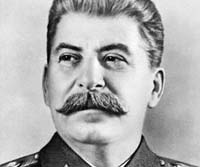 Tolle believes that mind-body practices Tolle believes that mind-body practices
could have prevented the worst atrocities
in Communist Russia.In A New Earth Tolle goes so far as to claim all of the atrocities associated with Communism could have been avoided had their been a shift in their “inner reality, their state of consciousness.” Again, his absolutism in regards to the power of internal transformation is quite extreme. If communists would have only stilled their minds, connected to their bodies and dis-identified with their false egoic self he believes countless lives would have been saved. It’s important to understand that when Tolle is referring to shifting inner consciousness, he is specifically talking about stilling the mind, not shifting inner social or political consciousness. Of course the issues are far more complex than Tolle presents. No simple solution like cultivating presence, stillness or embodiment would have changed a profoundly complicated socio-political experience that spanned vast territory and numerous decades. Furthermore, he falsely believes that spiritual awakening supports his social and political positions.
Tolle is suggesting that what communists needed and what environmental polluters need is internal spiritual transformation – not education, training, relationship building, diversity training, political understanding, environmental awareness or anything else. Why? Because Tolle believes in an all-knowing divine power that once channeled knows exactly what to do. This universal intelligence is unfolding and working through humans. If only environmental polluters and communists were to connect with God the world would be a much better place. For those who successfully do, they are contributing to more joy, peace, creativity and happiness on the planet. Spirit is unfolding in a direction and it supports Tolle’s social and political agenda and reflects his social location as a wealthy, heterosexual, white male with $4 million in the bank and a Jaguar in his driveway.
The reason, of course, that environmental experts don’t recommend mind-body practices like meditation or yoga in order to stop worldwide pollution is because they are entirely unrelated. If we were to take Tolle seriously we should instruct environmental educators to stop teaching about pollution and start teaching about how to connect to Being. However, stilling the mind will make someone pollute less just as it would make someone a better chef. Otherwise, we’d expect anyone who engaged in mind-body practices to eventually share the exact same social and political ideology. Again, the divine will of the universe could have resolved this if it only could awaken people to the realities of social injustice – not just instill within them an abstract and politically neutral state of presence.
Dangerous Minds
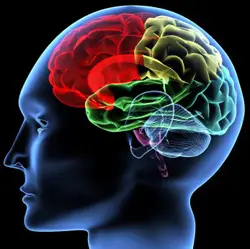
For Tolle the “mind” is a huge problem. He believes the reason that we have poor art, literature and music is because the world is mind dominated. It is in turning off the mind and stopping thoughts that we find salvation. This is however quite problematic. While certainly people can benefit from stilling the mind, to say that a busy mind is the cause of industrial capitalism or pollution is nonsense. There are lots of people with busy and cluttered minds who are on the forefront of social justice movements. Also, there are many people who have done lots of work to quiet their minds and yet still are supportive or in the least complicit with awful things. Inner calm is not synonymous with anti-capitalistic sentiments. Again, he is identifying a particular social/political agenda or outcome with presence. If only we turn off the mind then society will be better. Yet this is absolutely not the case. Members of the Tea Party can benefit from mindfulness just as left-wing anarchists can. Furthermore, creativity (one of the things Tolle values and is a result of stilling the mind) can be accessed by anyone for any purpose. Increasing the amount of creativity in the world won’t support the political ideas of Mr. Tolle. People can be creative in harmful ways.
Tolle believes that when the mind is still one can listen to and be guided by divine inner guidance. However, intuition is not detached from ones social and cultural conditioning. It is most certainly shaped by the values, morals, beliefs, customs and practices that have already influenced the intuitive feeling. The intuition of a KKK member in approaching issues of race is vastly different than the intuition of a Black Panther member. Any sort of universalizing divine quality that Tolle believes will speak to a particular social or political agenda is pure fiction.
What happens when you still a busy mind in Nazi, Germany? You have a still minded person living in and supporting an oppressive state. Same goes for Imperialistic countries like the United States.
Awakened Doing
At the end of A New Earth, Tolle describes his understanding of how acting in the world lines up with one’s inner purpose.
Awakened doing is the alignment of your outer purpose – what you do – with your inner purpose – awakening and staying awake. Through awakened doing, you become one with the outgoing purpose of the universe. Consciousness flows through you and into this world. It flows into your thoughts and inspires them. It flows into what you do and guides and empowers it.
He names three modalities of awakened doing, which without whatever we do will “be dysfunctional and of the ego.” They are acceptance, enjoyment, and enthusiasm. He believes these modalities represent a frequency of vibration and claims that we need to be in one of these states at all times. In fact, our suffering is caused by our lack of being in them.
Tolle again makes magical claims about the relationship between an individual being in a state of acceptance and social transformation. “On the surface, acceptance looks like a passive state, but in reality it is active and creative because it brings something entirely new into this world.” When you do something on the vibrational frequency of acceptance you are on the level of “consciousness.” His fetishization of the internal dimension is very clear.
If you can neither enjoy or bring acceptance to what you do – stop. Otherwise, you are not taking responsibility for the only thing you can really take responsibility for, which also happens to be the one thing that really matters: your state of consciousness. And if you are not taking responsibility for your state of consciousness, you are not taking responsibility for life.
He speaks in such abstract ways that it is hard to know exactly what he means by acceptance. However, it seems clear that cultivating a sense of joy and inner peace is more important than the action that one is doing. Thus, if the black voting rights activist Fannie Lou Hamer wasn’t in a state of inner peace when she was risking her life in Mississippi then she should have abandoned her project. For Tolle, her inner process is vastly more important than the action she was doing. Again, he states that consciousness is the only thing that really matters.
Like many other popular spiritual teachers Tolle believes that thoughts vibrate at certain frequencies. Some people, like contemplatives have a special role in this domain.
Their function is to anchor the frequency of the new consciousness on this planet. I call them the frequency-holders. They are here to generate consciousness through the activities of daily life, through their interactions with others as well as through just being…Thoughts consist of the same energy vibrating at a higher frequency than matter, which is why they cannot be seen or touched. Thoughts have their own range of frequencies, with negative thoughts at the lower end of the scale and the positive thoughts at the higher.
Thoughts or beliefs don’t vibrate at a frequency. There is simply no evidence of that they do. What frequency does being pro-choice resonate on? What is the frequency of wanting electoral reform? Does anger in one context resonate on a different frequency than in a another context, like for example when it is righteous anger against injustice? Does love vibrate at the same frequency in Mahatma Gandhi and Glenn Beck? If Republicans fall in love and get rid of “inner psychic pollution” would this vibration actually address the global challenges we face? Right-wing conservatives can be deeply in love, cultivate strong relationships, do profound inner transformation, meditate and be joyful. Aren’t presence and love beyond political persuasions and available to anyone regardless of their ideology? Or are Tolle’s “frequency-holders” only people whom he agrees with socially and politically?

Love isn’t progressive, socialist or limited to any political position. People of all ideological persuasions fall in love, make love, experience love and act in love. Is global transformation really based on raising the “love” vibration on the planet? After all, Glenn Beck’s latest gathering was called “Restoring Love.” There was lots of “love” amongst Protestant and Catholic Christians in Nazi Germany. Love for spouses, children, families and God. People were kind, caring and compassionate to members of their own kind while turning a blind eye or supporting to the horrific crimes of the state. What frequency did their love vibrate on and how did it matter in the larger scheme of things? Love is not the sole property of either progressives or conservatives. If both a pro-choice and a pro-life activist group based all of their methods, techniques and actions in love who would win?
Tolle’s second form of awakened doing is enjoyment. He states, “Through enjoyment, you link into that universal creative power itself.” When the creative power of the universe becomes conscious of itself, it manifests as joy.
You will enjoy any activity in which you are fully present, any activity that is not just a means to an end. It isn’t the action you perform that you really enjoy, but the deep sense of aliveness that flows into it. That aliveness is one with who you are. This means that when you enjoy doing something, you are really experiencing the joy of Being in its dynamic aspect. That’s why anything you enjoy doing connects you with the power behind all creation.
This is so vague that of course any action could be done with “joy” and thus originate from the “power behind all creation.” Couldn’t both a pro-life activist and a pro-choice activist experience joy in their actions? How about a right wing conservative and a left-wing democrat? If “joy” can be experienced by anyone regardless of their political, moral or social positions and actions it becomes a meaningless way of measuring “awakened doing.” Why? Because everyone who experiences joy would then be acting with “awakened doing.” But of course this contradicts Tolle’s position that Being or spirit is evolving in a certain direction. If it manifests in every direction then it is completely meaningless. “Joy” is not a liberal or conservative experience nor is it associated with any particular directionality in the universe.
Tolle’s third element of awakened doing is enthusiasm. It means, “there is a deep enjoyment in what you do plus the added element of a goal or a vision that you work toward. When you add a goal to the enjoyment of what you do, the energy-field or vibrational frequency changes…it resonates with the creative power of the universe.” He assigns a religious meaning to the word enthusiasm and over generalizes it to the extreme.
Unlike egoic wanting, which creates opposition in direct proportion to the intensity of its wanting, enthusiasm never opposes. It is non-confrontational. It’s activity does not create winners and losers. It is based on inclusion, not exclusion, of others. It does not need to use and manipulate people, because it is the power of creation itself and so does not need to take energy from some secondary source. When enthusiasm encounters obstacles in the form of adverse situations or uncooperative people, it never attacks but walks around them or by yielding or embracing turns the opposing energy into a helpful one, the foe into a friend…Through enthusiasm you enter into full alignment with the outgoing creative principle of the universe.
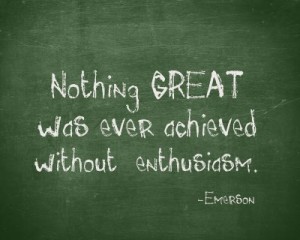 In "A New Earth" Tolle uses this quote from Emerson In "A New Earth" Tolle uses this quote from Emerson
to support his claim that enthusiasm will align you
with the divine, ego-free energy.
Tolle personifies enthusiasm and injects it with a deity like force that will act on behalf of the powers of good. It reminds me of those believe that when Jesus is on their team they will be aligned with God’s will. How can enthusiasm “never attack?” What does this mean? Can’t a suicide bomber enthusiastically blow himself up? Can’t soldiers enthusiastically attack the enemy?
There is a danger to Tolle’s simplistic belief that acceptance, joy and enthusiasm lead to awakened doing. It can easily lead one to believe that whatever they are doing is aligned with the creative principle of the universe as long as they are enthusiastic about it. The only compass or gauge of whether or not something is moral or non harmful is the individuals internal mind. Rather than basing ethics on dialogue, relationships or structural inequalities Tolle’s system is entirely dependent upon the cultivation of acceptance, joy and enthusiasm. These are vague and meaningless terms when trying to determine whether is something is for example racist or sexist.
Conclusion
"Resistance to the Now as a collective dysfunction is intrinsically connected to loss of awareness of Being and forms the basis of our dehumanized industrial civilization".- Eckhart Tolle
A friend recently told me that he believed spiritual awakening would make someone become more progressive politically. I asked him how far left would it make them go? Left-wing anarchist, liberal democrat, socialist? He didn’t know. But he believed it would make them more compassionate and likely to want to serve others. Yet, these are not domains of the “left.” I know many right-wing Christians who have dedicated their lives to serving others, but yet maintain homophobic, sexist and patriarchal attitudes. There were common citizens in Nazi Germany who volunteered and did service. There are many conservatives who are compassionate. My friend, like Tolle, confused spiritual awakening with a particular political agenda.
According to Tolle what is most urgently needed to address the thought addicted insane world is the cultivation of presence. Global transformation hinges upon awakening to our deepest, most essential being. How might one begin to discover this? As we’ve mentioned through stilling the mind or other embodiment practices. Also, “For some,” Tolle claims in A New Earth, a glimpse of awakening “will come while reading this book,” as it is “Designed to draw you into this new consciousness as you read.” He continues, “Again and again, I endeavor to take you with me into that timeless state of intense enlightenment.” If you were worried about the authenticity or truth of his teachings, he clears up the matter by stating his book “is not derived from external sources, but from the one true Source within, so it contains no theory or speculation.”
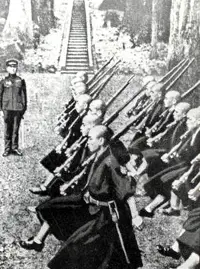 Japanese Zen Monks at War Japanese Zen Monks at WarLike many others Tolle mistakenly conflates presence with justice. People can cultivate presence and and still the mind and yet live in a society that is racist, sexist and based on capitalist exploitation. Presence is not anti-thetical to a “dehumanized industrial civilization.” There can be lots of “nice” people who are calm and do things in a “sacred” manner and yet be completely oblivious to the ways in which the surrounding culture pollutes, oppresses and marginalizes people.
As was the case with Zen Buddhism in Japan during and before WWII, the cultivation of stillness, compassion and love can co-exist with the worst fascism and imperialism. The entire institution of Zen Buddhism – the masters, monks and professors supported the cruel and colonizing efforts of the state and emperor. They defended the “wars of compassion,” gorged themselves in killing and advocated merging the small self with the larger self of the state. This was all done within the monastical, academic and ethical systems of Zen Buddhism. Furthermore, most white people in the history of U.S. have believed themselves to be loving, caring, compassionate people. Many have even engaged in spiritual practices for decades now, yet have been complicit in all sorts of racist, bigoted and Imperialistic actions in America. White people aren’t more aware of their own racism or racist past because they’ve cultivated presence or live in the Now.
Certainly Tolle has transformed the lives of many people. Millions have benefited from his teachings. The physical and mental benefits of mind-body spiritual practices are clear. Yet, this just makes the point I’m trying to illustrate much clearer. It doesn’t matter what political or social persuasion one is, anyone can benefit from individual transformative practices. To suggest that engaging in these practices is thus aligning with a certain political direction of the divine will as Tolle does is simply untrue. Again, anyone who stills the mind or cultivates presence would necessarily end up at the same social and political positions. We’d all end up like Tolle. That’s not my definition of a transformed planet.
Teachings like those of Tolle are overly simplistic and irresponsible. To say that the global problems of the world will be solved if we all still the mind, connect with Being and live in joy, enthusiasm and acceptance is incredibly naive. His ideas are based on magical thinking, not unlike The Secret and many other pop-spiritual philosophies. He claims that by just allowing the present moment to be it “will miraculously transform your whole life.” Even if one addresses their shadow through therapy or other transformative work, this still won’t lead to the global transformation that Tolle speaks of. These teachings make larger than life promises and conflate inner transformation with external transformation when in reality people with varying political positions can equally benefit from spiritual/psychological growth and still maintain their perspectives and actions regardless of how harmful they are.
Claims that the divine is working through us to fulfill the evolutionary mission of consciousness are so abstract they are meaningless. Most significantly the “will of the divine” always reflects the social, political and ideological positions of those making the claims. Saying this doesn’t mean I’m against spiritual practices or individual transformation just as me saying that poetry won’t save us doesn’t mean that I’m against poetry. Rather it is important to pull these two domains of internal and external transformation apart to clearly see what has erroneously been projected onto them.
We are already facing immense global challenges, which are seemingly only going to get worse. Getting in touch with God, love, Being or Source won’t save us now. Spiritual awakening won’t solve the problems we must confront. The issue is not lack of Being or unwillingness to be in the Now. Instead of fetishizing internal transformation as a global panacea or promoting the idea that God is evolving through us let’s build the networks of relationships and communities of resistance necessary to survive the coming planetary challenges.
|
 Be Scofield is a queer/trans writer, activist, founder of decolonizingyoga.com, Dr. King scholar and web/interaction/graphic designer who specializes in helping progressive and alternative health platforms shine. Her work has appeared in Tikkun Magazine, Huffington Post and Alternet and she has a chapter in the book 21st Century Yoga: Culture, Politics & Practice. Be holds a B.A. in Psychology/Philosophy from Warren Wilson College (2006), has done graduate coursework in Postcolonial Anthropology and holds a Master of Divinity from Starr King School for the Ministry in the Unitarian Universalist tradition with emphases in women's studies in religion, sacred dance, African-American religion and Buddhism. Be specializes in the radical teachings of Dr. King and has taught a graduate course called "Dr. King and Empire: How MLK Jr. Resisted War, Capitalism and Christian Fundamentalism."
Be Scofield is a queer/trans writer, activist, founder of decolonizingyoga.com, Dr. King scholar and web/interaction/graphic designer who specializes in helping progressive and alternative health platforms shine. Her work has appeared in Tikkun Magazine, Huffington Post and Alternet and she has a chapter in the book 21st Century Yoga: Culture, Politics & Practice. Be holds a B.A. in Psychology/Philosophy from Warren Wilson College (2006), has done graduate coursework in Postcolonial Anthropology and holds a Master of Divinity from Starr King School for the Ministry in the Unitarian Universalist tradition with emphases in women's studies in religion, sacred dance, African-American religion and Buddhism. Be specializes in the radical teachings of Dr. King and has taught a graduate course called "Dr. King and Empire: How MLK Jr. Resisted War, Capitalism and Christian Fundamentalism."







